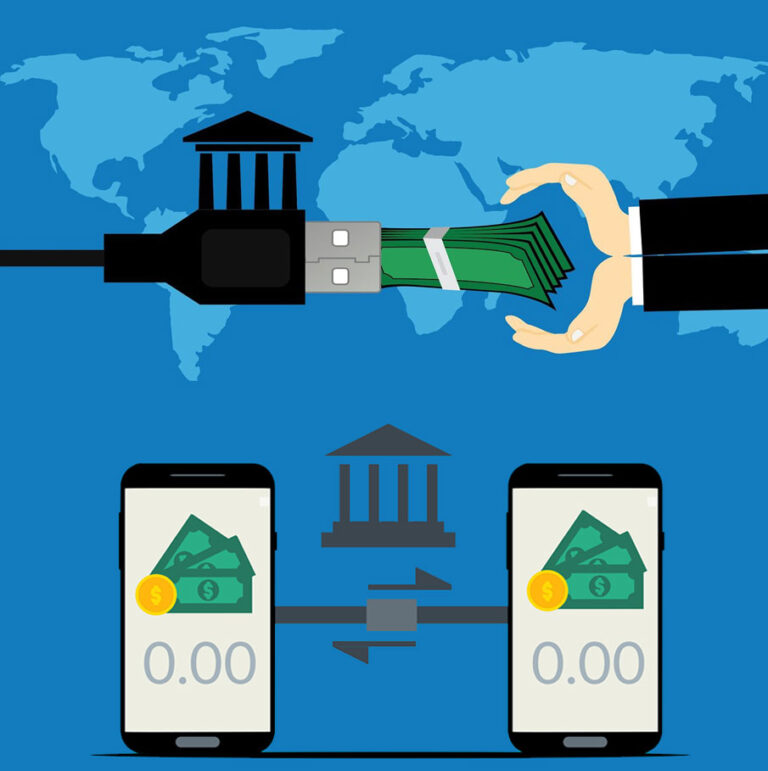Are Online Banks a Good Place to Invest? Pros and Cons Explained
Introduction
The world of investing has evolved significantly with the rise of online banking. Digital banks have expanded beyond simple savings accounts to offer various investment options, including high-yield savings, certificates of deposit (CDs), robo-advisors, and even direct stock trading. But the question remains: Are online banks a good place to invest?
For beginner investors, understanding the advantages and drawbacks of online banking investments is crucial. This guide provides a step-by-step breakdown of how to invest through online banks, highlights key security measures, and evaluates the risks and rewards of digital investing.
What Are Online Banking Investments?
Online banks provide a range of investment opportunities tailored to different financial goals. Unlike traditional banks, online banks operate with lower overhead costs, allowing them to offer higher interest rates and lower fees on investment products.
Common investment options available at online banks include:
- High-Yield Savings Accounts – Earn higher interest rates while maintaining easy access to your funds.
- Certificates of Deposit (CDs) – Lock in a fixed interest rate for a set period.
- Robo-Advisors – Automated investment services that manage your portfolio.
- Brokerage Accounts – Invest in stocks, ETFs, and bonds directly.
- Retirement Accounts (IRAs, Roth IRAs) – Tax-advantaged investment options for long-term growth.
Pros of Investing Through Online Banks
1. Higher Interest Rates
Online banks generally offer higher interest rates on savings accounts and CDs compared to traditional banks, maximizing passive income for investors.
2. Lower Fees
Without physical branches, online banks operate at a lower cost, passing savings to customers through reduced fees on transactions, investments, and account maintenance.
3. Convenience and Accessibility
With 24/7 access to your funds and investment portfolio, online banking provides unmatched convenience, allowing investors to manage their wealth from anywhere.
4. Automated Investment Tools
Robo-advisors and automated savings plans help beginner investors build portfolios without the need for active management, making investing simpler and more efficient.
5. Strong Digital Security Measures
Modern online banks implement multi-factor authentication, encryption, and fraud monitoring, ensuring a secure environment for digital investments.
Cons of Investing Through Online Banks
1. Limited Investment Options
While online banks offer various investment tools, they often lack the wide range of products found at full-service brokerage firms.
2. Less Personalized Financial Advice
Unlike traditional banks with in-person advisors, online banks primarily rely on automated customer support, which may not meet the needs of every investor.
3. Potential Withdrawal Restrictions
Certain investment products, such as CDs and retirement accounts, have strict withdrawal limitations and penalties, which can affect liquidity.
4. Security Concerns
Although digital banks have robust security measures, online accounts remain vulnerable to hacking and cyber threats if users do not take proper precautions.
Step-by-Step Guide to Investing with Online Banks
Step 1: Research and Compare Online Banks
Before investing, compare interest rates, fees, and available investment products from various online banks to find the best fit for your financial goals.
Step 2: Open an Account
Once you’ve chosen an online bank, complete the account setup process by verifying your identity and linking external accounts for fund transfers.
Step 3: Choose Your Investment Strategy
Select an investment option based on your risk tolerance and financial objectives. Options range from low-risk savings accounts to higher-risk stock investments.
Step 4: Automate Your Investments
Set up recurring transfers to savings or investment accounts and enable robo-advisory services to optimize portfolio management.
Step 5: Monitor and Adjust Your Portfolio
Regularly review investment performance, adjust asset allocation as needed, and ensure security measures like multi-factor authentication are in place.
Digital Security and Risk Management for Online Banking Investments
1. Use Strong Passwords and Multi-Factor Authentication (MFA)
Enhance account security by using complex passwords and enabling MFA to prevent unauthorized access.
2. Avoid Public Wi-Fi for Transactions
Conduct all banking and investment activities on secure, private networks to reduce the risk of cyber threats.
3. Monitor Account Activity
Regularly check account statements for suspicious transactions and report any unauthorized activity immediately.
4. Choose FDIC-Insured Banks
Ensure that your chosen online bank is FDIC-insured, protecting deposits up to $250,000 per account holder.
Future of Online Banking Investments
With advancements in AI, blockchain, and digital security, the future of online banking investments looks promising. Emerging trends include:
- AI-Driven Investment Strategies – Personalized recommendations based on financial behavior.
- Cryptocurrency Integration – More online banks offering crypto investments.
- Enhanced Fraud Detection Systems – AI-powered monitoring to prevent cyber fraud.
Conclusion: Are Online Banks a Good Place to Invest?
For beginner investors, online banks offer a convenient, low-cost way to start investing with automated tools, high-yield accounts, and strong security features. However, limitations in investment options and personalized support may make traditional brokerage firms a better choice for more complex financial strategies.
Next Steps:
- Research and compare online banks offering investment opportunities.
- Open an account and explore available investment tools.
- Implement digital security measures to protect your financial assets.
- Regularly monitor and adjust your investments for long-term growth.
By leveraging the benefits of digital banking while managing potential risks, you can effectively use online banks as a strategic component of your investment portfolio.
Important links about Investing & Wealth:







